A
Absorbent Refers to the ability of some materials - often composed of pressed or woven fibers - to soak up and retain liquid.
Some mat board brands have absorbent properties. |
| Abstract art An art style that avoids realistic and recognizable imagery, and instead depicts emotion through compositions of color and shape. Abstract art began to shift to the mainstream around the turn of the 20th century, as artists sought new ways to express their interpretations of the world. |
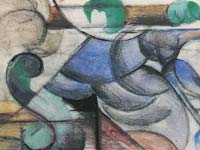 |
| Acid Any chemical whose pH level is below 7. Acids can react negatively with fine art papers, causing discoloration and peeling of the medium, or weakening the paper. This affects the longevity of the artwork; therefore most important artworks are preserved with acid-free, archival quality products. |
| Acid Burn This occurs when artwork is matted and framed using materials that are not conservation quality (acid-free). Acid burn presents as a yellow or brown discoloration on the art paper. |
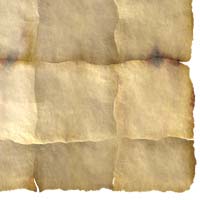 |
| Acid Etched A method used to affect the reflective qualities of glass. One or both sides of the glass is treated with an acid, then the glass is returned to a neutral pH to avoid damaging the artwork. |
Acid Migration The movement of acid from an acidic material to material of lesser or no acidity, either from direct contact or through exposure to acidic vapors in the surrounding environment.
May occur either when the two materials are in contact with each other, or by vapor transfer from one material to nearby materials not actually in contact with it. Boards, endpapers, and protective tissues, as well as the paper covers of books and pamphlets, may contain acid and transfer it to otherwise low-acid or acid-free paper of the text. |
| Acid Neutralizer Any basic/alkaline substance that has the ability to alter another substance's pH level, returning it to 7 (neutral). In picture framing, calcium carbonate is most commonly used. Also called "buffer" |
| Acid Outgassing A transfer of an acidic substance from one material to another. In picture framing, this is seen when a mat is not acid-free, and therefore damages the artwork behind it. |
| Acid-free Paper materials with a pH of around 7 are considered to be acid-free. These materials are less likely to harm artwork over time. Materials with a pH below 6.5 or above a pH of 8.5 are not considered acid-free. |
 |
| Acrylic Gesso A mixture of calcium carbonate (chalk) and an acrylic binder and a white pigment. Coating a canvas with this substance prior to painting with acrylics will improve the longevity of the artwork. The application of the gesso helps the paints to go on more smoothly, and prevents them from soaking into the raw, unprimed canvas. |
Acrylic Glass Often called plexiglass (derived from the brand name Plexiglas), acrylic glass is often used in as the clear cover or “glazing” in framing. It is lighter than real (silicate) glass and allows for a clearer, untinted view of the artwork behind it. It does not shatter and can be treated to be archival and UV-resistant.For more information see our article :
Acrylic vs Glass
To order Custom-cut plexi sheets click here: Plexi Sheets
|
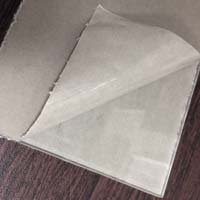 |
| Acrylic Knives When cutting acrylic glass for picture framing, it is best to score the acrylic along the line multiple times, and then break it off against a flat edge. A large cutter can be used for cutting acrylic glass, but sharp, handheld knives (such as utility blades) work as well. |
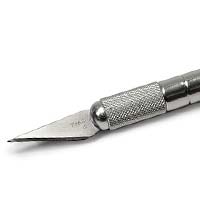 |
| Acrylic resin A group of related thermoplastic or thermosetting plastic substances |
| Acrylic Sheet Another name for acrylic glass, or plexiglass. Often used in picture framing in place of real glass because it is shatter-proof, much lighter, and clearer than most types of glass. Acrylic is available with non-glare and UV protective properties. |
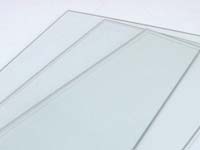 |
| Acrylic-primed canvas Due to their different properties, canvases used for acrylic and oil painting cannot be primed with the same medium. Acrylic primers are chemically prepared to provide the correct balance of flexibility and rigidity. This primer also provides a tooth (coarseness) that allows the paint to properly adhere to the canvas. Applying a primer prevents the paint from soaking into the canvas. |
Acrylite A brand name acrylic plastic sheeting (acrylic glass). Acrylite offers a wide selection of museum and conservation grade acrylic for use in picture framing, residential and commercial windows, and aviation.
Order it now: Acrylic plexiglass |
 |
Adhesive In picture framing, an adhesive is used to affix the artwork to the mat or backing. Double sided tape or a wet adhesive such as a spray glue can be used. If the piece must maintain archival quality, an adhesive must be used that is acid-free and can be removed without damaging the artwork. Water-activated paper tapes and rice starch are most common.
Order now: Framing Tape |
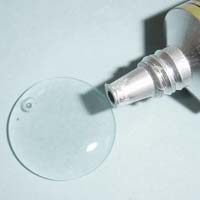 |
Adobe An international software company based in the USA that produces creative multimedia programs for all kinds of artistic operations.
Adobe products include: Photoshop, Illustrator, Acrobat, InDesign, Lightroom, Soundbooth, Bridge, and many more. |
| Alkaline Paper A pH neutral paper that is generally processed with calcium carbonate, the alkaline substance most commonly used in art production. Alkaline papers are acid-free and conservation-grade. |
| Allowance The additional space provided to avoid overflow or miscalculation in picture framing. Often, the rabbet will have an allowance beyond the thickness of the contents of the frame, so points or brads can be inserted. The framer will also cut your frame with a 1/16" allowance on each side. Should your artwork expand due to humidity or temperature changes in the future, this extra space will prevent buckling. |
| Almond Color A light shade of brown with a strong white component, providing a soft, pastel-like color. |
 |
| Alpha Cellulose Pure cellulose, extracted from wood pulp. Another name for "purified wood pulp". Alpha cellulose has the longest and most stable chemical chain, which results in the strongest art papers. |
Alphamat The first archival matboard with color, offering the benefit of preservation without sacrificing design, introduced by Nielsen Bainbridge in 1979.
Order online:
Full-sheet Matboard
Custom Matboard
|
| Alpharag 100% pure cotton rag, acid-free and archival quality fiber. Art papers made from alpharag are conservation-grade. |
Aluminium Aluminium metal pciture frames are often less expensive than wood frames, and the face of the frame is generally flat or curved, without any ornate decoration.
This is due to their manufacture, which consists of dragging strips of aluminum through a die (mould) cut in the shape of the frame's profile. This ensures the frame length is completely uniform.
Aluminium frames are strong and sturdy; a thin frame can support quite a large image, despite the added weight of the glass and backing.
We have a large selection of metal frames. |
| Aluminyzed Prints Aluminyze prints are images infused directly into a sheet of aluminium using a hot press - a process called sublimation. The result? A vibrant and durable print with unparalleled colour and depth. |
Anodized Aluminum Anodized aluminum is a type of aluminum alloy or substrate that has undergone an electrochemical process called anodization to form a durable, corrosion-resistant oxide layer on its surface. Anodized aluminum surfaces exhibit enhanced hardness, scratch resistance, and color stability, making them ideal substrates for laser engraving, marking, and decorative applications. Laser engraving on anodized aluminum selectively removes or modifies the oxide layer to reveal contrasting colors, create high-contrast designs, and produce permanent, high-resolution markings with exceptional durability and longevity.
Anodized aluminum laser engraving is widely used in signage, branding, consumer electronics, and aerospace industries to achieve aesthetic, functional, and durable product labeling, identification, and customization solutions on aluminum-based components and assemblies.
|
| ANSI The American National Standards Institute. This national group determines the guidelines governing a wide variety of commercially produced goods. |
| Antiquing The act of making something look old (antique), by scratching, painting, buffing chemical or digital alteration. |
| Apron A protective garment worn over the clothing. In art production, an apron is worn when dry mounting, coating canvas, painting and working with any type of chemicals. Aprons are made from various materials, from thin cotton to heavy-duty plastic. |
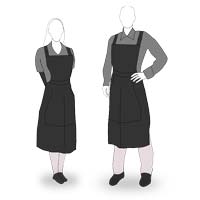 |
Aqueous-Based Printers Aqueous-based printers, so called because the ink used is primarily water mixed with either dyes or pigments, are widely used for canvas printing and typically offer the best image quality.
Most print shops have moved to pigmented inks because these inks provide a more urable print than dye inks; pigmented inks are now the standard. |
| Arakawa hanging system Arakawa is a company that supplies picture frame hanging rails for easy residential or commercial art displays. They advertise clear hanging wires and subtle rails that do not distract from the artwork. |
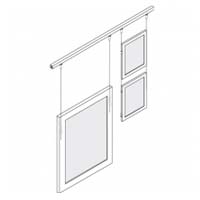 |
| Arch Mat The mat opening is cut in the shape of an arch; a rectangle or square with a curved top line/side. A popular display for wedding photographs. |
Archival Archival framing means that all the materials involved in the process are completely acid-free. Your artwork is framed to last.
An original artwork can be considered archival if no irreversible treatments (such as lamination or dry mounting) are applied, and the framing products involved are of archival quality. |
| Archival Ink Pigment inks designed for longevity. These inks resist fading and produce conservation-grade prints that will last for decades. |
Archival Paper Acid-free options for fine art papers and matboard are generally made with 100% cotton rag fiber, to withstand discoloration and fading for decades. Also called "conservation grade."
Many of our papers are archival quality.
Order online: Fine Art Prints |
| Archival Products Any professional-grade fine art paper, mat board, backing or acrylic that is acid-free and constructed to maintain its color and condition, and protect the artwork, for approximately 100 years. |
| Archival-stub Framing materials designed to keep artwork undamaged and intact for as long as it is displayed (as many as 100 years), under moderate circumstances. Also called conservation-grade or museum-grade. |
Artist Canvas Any canvas material intended and prepared for painting or other art mediums. Artist canvas is available on rolls, or pre-mounted on wood frames. Today, most canvas is made from cotton and linen, though hemp was common in the past. The canvas may be primed or unprimed, depending on the artists preference.
Order online:
Mounted Artist Canvas
Rolled Artist Canvas |
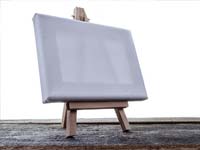 |
Artwork Height When ordering a frame, you will be asked to provide a “height” measurement. This is always the vertical measurement of the artwork you are framing. Measure your piece from top to bottom. It is important to ensure the ruler or measuring tape is straight (the same distance from one side on each end) and the recorded measurement is accurate to within 1/16th of an inch.  |
| Artwork Size The width and height of the artwork for which you are purchasing a frame. It is important that these measurements are accurate to 1/16th of an inch, as your frame will be custom made using these dimensions. |
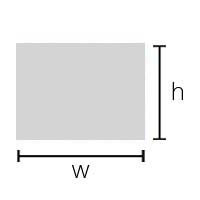 |
| Artwork Width When ordering a frame, you will be asked to provide a “width” measurement. This is always the horizontal measurement of the artwork you are framing. Measure your piece from left to right. It is important to ensure the ruler or measuring tape is straight (the same distance from the top on each side) and the recorded measurement is accurate to within 1/16th of an inch. |
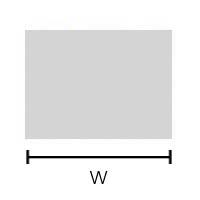 |
| Ash wood A member of the Olive family, Ash can be found across Europe, Asia and North America. Considered a Dense Hardwood, Ash is very strong and hardy, but has attractive elastic qualities as well. White Ash and Black Ash differ in appearance, with White Ash being lighter in color with a looser grain, while Black Ash has a tighter grain and darker coloring. |
| Aspect Ratio The relationship between the height of your photo or artwork to its length is called the aspect ratio. |
| ASTM American Society for Testing and Materials. Define performance standards for a wide variety of commercially produced products in the United States. |
ATG tape Used in a rolling tape dispenser, ATG tape is an alternative to double-sided tape that applies a thin line of adhesive when pressed and rolled along a surface. Available in acid-free, this tape is useful for hinging images to mats or backing prior to fitting art into a picture frame, or for mounting artwork onto backing for frameless displays.
Order online: Tapes and Adhesives |
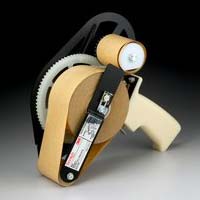 |
| Ayous moulding Ayous is a hardwood tropical tree native to Africa. It is often used in the construction of picture frames. |
